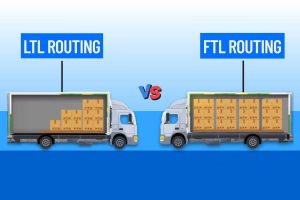Short-term rentals have been extremely profitable over the last several years. If you don’t have a facility to rent, how about learning how to become a property manager?
This tempting opportunity for a career change could lead to a successful business. If you are interested in becoming a vacation rental property manager, our short guide will reveal everything you need to start!
1. Design a Business Plan
The journey of establishing a property management company starts with the basics. The first thing to do is to create a business plan.
It should include the following things:
- Available services – define the exact services you will offer as a property manager. Analyze the market and try to differentiate yourself from other businesses.
- Budget projections and planning – consider how much you plan to invest and try to analyze all potential expenses. Next, estimate the expected income and try to be realistic. The idea is to create a financial plan to know when you can expect the business to become profitable.
- Business structure – those who start a property management business usually go with an LLC (limited liability corporation) or an incorporated business.
- Marketing plan – do you plan on advertising your company online, or you prefer focusing on local clients in a particular area?
While designing a plan, always consider how your business can stand out from its competitors. For example, you can help property owners to create and complete checklists when equipping their properties.
2. Get the Required Licenses
The crucial step in learning how to become a property manager is to get the required licenses for the job. Since local regulations might vary, make sure to consider licensing requirements in your area.
You can complete programs to become a certified apartment manager – CAM. Acquiring a certificate is always a smart idea because it can help to attract more clients. That is especially true if you don’t have any previous experience in the industry.
3. Determine Prices and Stay Competitive
Once the client confirms you have the required licenses to run a property management business, they will ask you about the prices.
Here are some common fees charged by successful property managers:
- Single-time charges – you will charge for some services only once. Those could include a setup fee when you start doing business with a particular client. Another common option is the leasing charge, which is usually worth a monthly rent.
- Recurring charges – this is how a residential property manager earns money. The general rule is to take around 5-10% of the total monthly revenue. In return, you are expected to provide services like completing inspections and communicating with visitors and owners.
- Other charges – if a property owner doesn’t want to evict a guest themselves, you can take over and charge a fee for your service. Other fees to consider include those for maintenance and repairs, or increased prices when the owner is late for their payment.
4. Design a Website and a Marketing Strategy
You might have learned how to do the property manager job, but now it’s time to let the others know about it. The initial step is creating a website for your services. A modern and attractive site can attract clients, so make sure that a professional handles its design.
An essential part of attracting clients will also be designing professional profile pages for the properties you manage. Make sure to create an attractive description and place high-quality photos of the accommodation. You can ask the property owner to share their pictures or head to the accommodation and photograph it yourself.
Don’t forget the importance of customer service. Make sure to respond quickly to any question asked by the potential visitors and keep the page information updated.
5. Expand Local Contact Network
You will often find getting connected with local professionals as one of the foundations of property management services. If you established an official business, you would need a bookkeeper. They will help you pay all taxes on time and ensure your paperwork meets all regulations. A lawyer can draft all contracts and help you if legal issues arise.
Finding plumbers, cleaners, and electricians, you can rely on is crucial. It might be tricky to find reliable maintenance staff if you are an entry-level position manager, but it will be worth it.
6. Don’t Hesitate to Use Top-Quality Software
A career in property management sounds promising, but managers also have numerous responsibilities. Using professional software solutions like iGMS provides peace of mind in all situations. This tool is easy to use, and it won’t take long to get used to how it works.
The app can help you to automate various aspects of the property management business. That includes:
- Using a single dashboard to handle client communication on multiple channels
- Taking advantage of a smart messaging feature to respond quickly
- Creating and managing tasks for the cleaning and maintenance staff
- Using a channel manager to synchronize your calendars and avoiding double bookings when managing multiple platforms and properties.
Conclusion
We hope that our article helped you learn how to become a property manager. It takes some effort to set everything up and attract clients. Apart from the tempting earnings, the job can be extremely fun and satisfying. By sticking to this guide, you will know what to do from the beginning, and that will increase your chances of success!












